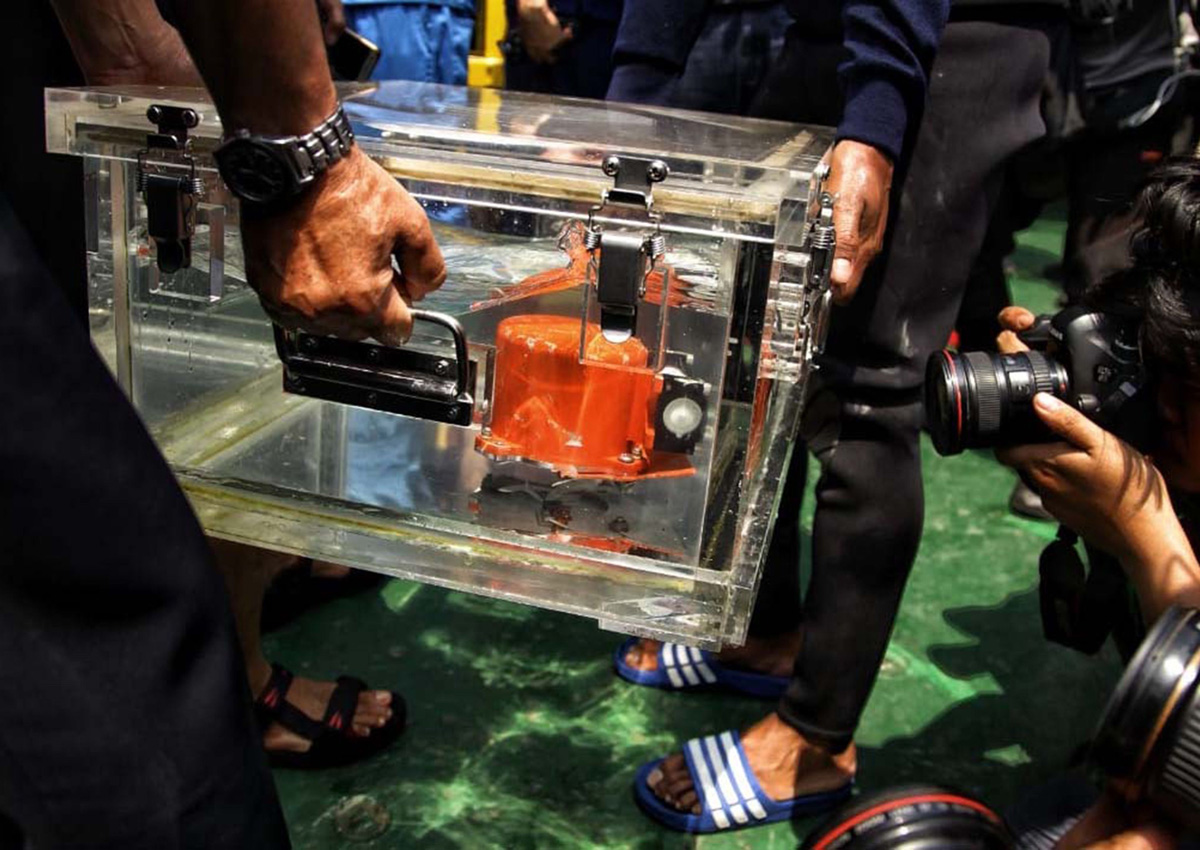1 'black box' recovered from crashed Lion Air jet

One black box from the crashed Lion Air jet has been recovered, the head of Indonesia's National Transportation Safety Committee said Thursday, which could be critical to establishing why the brand new plane fell out of the sky.
The devices record information about the speed, altitude and direction of the plane as well as flight crew conversations and could hold vital clues to the cause of the deadly accident.
"We found one of the black boxes," Soerjanto Tjahjono told AFP.
It was not clear whether it was the flight data recorder or cockpit voice recorder.
The Boeing-737 MAX 8, which went into service just a few months ago, plunged into the Java Sea off Indonesia's northern coast on Monday, killing 189 people, just 12 minutes after taking off from the capital Jakarta en route to Pangkal Pinang city.
The single-aisle Boeing plane is one of the world's newest and most advanced commercial passenger jets.
Images from the crash site showed two divers swim to a support vessel and place an orange-coloured device into a plastic tub.

Despite the name, black boxes are in fact bright orange with reflective stripes, and all commercial planes are obliged to have them on board.
They're built to survive at vast depths and in extreme heat, and are fitted with a beacon which can emit a signal for one month.
Black box data help explain nearly 90 per cent of all crashes, according to aviation experts.
"Data from the plane -- the engine, all the instruments -- are recorded there," aviation analyst Dudi Sudibyo told AFP.
"If there is an anomaly, some technical problem, it is recorded there too."
DNA testing
Dozens of divers are taking part in the massive recovery effort along with helicopters and ships, but authorities have all but ruled out finding any survivors.
Searchers are still looking for the plane's fuselage and only body parts have been found so far, possibly from passengers seated in parts of the jet that were decimated on impact.
"I assume that there will be a lot of bodies still strapped into the seats," Sudibyo said.
On a Jakarta dockside, Boeing and US National Transportation Safety Board officials joined the Indonesian team in sifting through twisted metal plane parts and a pile of personal effects plucked from the sea, from torn clothing and shoes to wallets and mobile phones.
Authorities are sending recovered remains to hospital for DNA comparison to passengers' relatives.
Forensic experts identified Jannatun Cintya Dewi as the first victim of the crash Wednesday evening.
The 24-year-old's coffin arrived in her East Java hometown Sidoarjo Thursday, draped in a green and yellow cloth and inscribed with Arabic writing and carried through the neighbourhood by pallbearers.
Dewi's mother collapsed and had to be carried into their home, while friends and relatives wiped away tears as the casket was laid in a freshly dug grave sprinkled with flowers, with a bowl of fruit and two palm branches at one end.
Aviation experts are puzzled by the accident and say it's too early to determine what caused the crash.
But Lion's admission that the aircraft had an unspecified technical issue on a previous flight -- as well its abrupt nosedive -- have raised questions about whether it had any faults specific to the newly released model, including a speed-and-altitude system malfunction.
The accident has also resurrected concerns about Indonesia's poor air safety record which until recently saw the country's carriers facing years-long bans from entering European Union and US airspace.
Lion Air has been plagued by safety woes and customer complaints over unreliable scheduling and poor service.
The budget carrier has been involved in a number of incidents including a fatal 2004 crash and a collision between two Lion Air planes at Jakarta's Soekarno-Hatta airport.
In 2014, an AirAsia crash in the Java Sea during stormy weather killed 162 people.